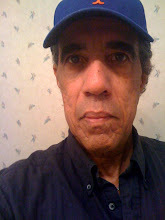
YOU HAVE GOT TO READ THIS! This is totally incredible!
Hey people, if your life sucks, like I know some of your lives do, then you may want to consider getting a "Second Life"! I'm sure it would be a significant upgrade for some of you. LOL
'Second Life' 3-D Digital World Grows
AMSTERDAM, Netherlands (AP) - In the beginning, Philip Rosedale created a virtual heaven and a digital earth, and then he said "let there be 'Second Life.'"
Whether or not it's good, the 38-year-old entrepreneur's 3-D world is certainly fruitful and multiplying.
"Second Life" now has more than 800,000 denizens, of whom more than a hundred are earning a real-world, full-time living there, selling things like virtual land, clothes, jewelry, weaponry and pets, or by offering virtual services, notably sex.
Yes, people pay real money for things they can only use in Rosedale's world, which is created on powerful servers and accessed through the Internet. Hundreds of thousands of real dollars change hands in "Second Life" daily, and it would have an annual gross domestic product of around $150 million if it were to stop growing today.
But Rosedale forecasts it will pass a million users this year. A rush to be part of the "new new thing" is on, and organizations like Major League Baseball, Harvard University, American Apparel Inc., and CNet.com are among the many opening operations in "Second Life," while musicians like Duran Duran and Suzanne Vega have broadcast virtual concerts there using the world's lifelike animated characters.
As chief executive of Linden Research Inc., which owns "Second Life," Rosedale is akin to the world's god, with the software code he approves determining its fundamental laws. But when he enters "Second Life" as his self-created avatar, or character, he claims no special power other than celebrity above the thousands of other intelligent designers who populate its realms.
"I have to admit that I'm vain, like all of us. Nowadays to be Philip Linden (his online alter ego) is to be a rock star," he told The Associated Press in an interview at a recent conference.
But "if I were the king, then this couldn't be what it is," he says.
Whatever "Second Life" is, it's clear that it belongs in a different class than the virtual realities of film and fiction that have gone before it.
The closest comparison would be to online video games like "World of Warcraft," or "The Sims Online." Users download free software that opens a portal to "Second Life," and Linden's servers draft models of the ever-changing world and send it back to them as a real-time video.
The difference is, Rosedale's creation "is not a game," he said. It doesn't have a goal, and most resources aren't restricted. Characters can fly or breathe water, and they never age or die.
Like in real life, it's up to you what you do in "Second Life," and many are flocking to it with dreams of getting rich quick. Anshe Chung, the character created by Chinese-German businesswoman Ailin Graef, reportedly netted more than $100,000 last year trading and leasing land in desirable "Second Life" locations.
Land is the one resource that is limited, and the main source of revenue for Linden. Users who want a permanent place in the world to build their virtual homes or set up businesses pay $10 a month to own 500 virtual square meters, or an eighth of an acre, in addition to the one-time cost of purchasing developed real estate from speculators like Graef or virgin land from Linden.
Linden also takes in commissions from operating "Second Life's" currency exchange. "Linden dollars" trade at a fluctuating rate against the U.S dollar - right now it's about US$1 to L$280.
Another big draw for "Second Life" is the prospect of witnessing or engaging in virtual sex. Players can alter their characters' appearance to be as beautiful or sexy as their imaginations - and computer graphics - allow them to be.
Rosedale says he did intend "Second Life" to be a kind of marketplace, but not necessarily a brothel. "The generative idea was that it was a place where you could create things," he says.
Users own the intellectual property rights to the things they design there. That has attracted tech-savvy designers who craft landscapes of stunning beauty and build objects of infinite cunning.
Rosedale describes a recent invention that caught his eye: virtual glasses that, when worn, allow players who don't speak the same language to communicate.
"It's magical," he says, "to have someone type Japanese (characters) to you and then, blip, words" appear on your screen.
Rosedale says scholars and companies are using "Second Life" to model real-world problems, like the logistics of distributing aid after a disaster, or studying how efficient the layout of a proposed office building will be.
Of course, "Second Life" is hardly a Garden of Eden. One of its servers was hacked last month, potentially exposing users' personal data, and in-game harassment is a common problem. On "Second Life's" Web site there's a "police blotter" of disciplinary action taken against users for various violations of the world's commonsense code of conduct.
Rosedale says there are no court cases that he's aware of yet but he concedes a lawsuit over in-game copyright infringement can't be far off.
Rosedale describes himself as a bookish San Diego kid who liked electronics and power tools from an early age - he even modified his bedroom door to open upward with a garage opener.
He became interested in computer programming and founded his first company while still in high school. It was bought by RealNetworks Inc. (RNWK) in 1996 and Rosedale served as the company's chief technical officer. He left in 1999, when he realized high-speed Internet connections would soon make it possible to create the virtual world he had dreamed about for a decade.
"Second Life" was launched in 2003. It's grown to the size of a virtual San Francisco, where Linden is based, but its geography and cultural life are so rich and varied that the October issue of Wired Magazine contains a "Let's Go"-style sightseeing guide.
Rosedale says Linden is "almost" turning a profit. He owns a significant stake in the company, but doesn't control it. It's backed by well-known Silicon Valley venture capital firms.
Rosedale says he wouldn't have predicted many things about the direction users have taken the world.
"I thought that when you came into 'Second Life,' you'd see, like, 'space port Alpha' ... a wild mishmash of future visions," he says.
In fact, there are many futuristic landscapes and cyber-punk characters. But advertisements are everywhere, and much of the world's residential property looks like Malibu - a reflection of people's earthly desires.
"They want oceanfront property ... and they want palm trees, and they want a cantilevered Frank Lloyd Wright house, up a little bit from a beach at a pier with a little power boat ... And then they watch the sun set on the deck," he says.
Okay, blew your mind right? Well, here is the link to Second Life: Your World. Your Imagination. Check it out and start your own "Second Life"!
You can check out this weeks lotto numbers atBobby Sharpe's "Stupid People": Lottery Picks for the Week of Oct.8, 2006. Also, for the latest in music etc. go to www.myspace.com/akuasharpe






No comments:
Post a Comment